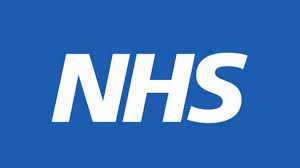Non-hormonal causes
- 28 Nov 2023
- 1 Minute to read
- Print
- PDF
Non-hormonal causes
- Updated on 28 Nov 2023
- 1 Minute to read
- Print
- PDF
Article summary
Did you find this summary helpful?
Thank you for your feedback
For information on non-hormonal causes of insomnia see NICE CKS guidance. Some examples include:
NATURAL AGEING:
- The circadian system and sleep homeostatic mechanisms become less robust with normal ageing.
- Total sleep time, sleep efficiency, and deep sleep decrease with ageing and the number of nocturnal awakenings and time spent awake during the night increase.
HEALTH CONDITIONS AND MEDICATIONS:
- Medical disorders such as COPD, heart failure, neurodegenerative diseases, malignancy, musculoskeletal conditions and chronic pain.
- Psychiatric conditions such as PTSD, depression and anxiety.
- Primary sleep disorders, this includes insomnia disorder, obstructive sleep apnoea, sleep-disordered breathing and restless legs syndrome.
- Prescribable medications such as corticosteroids and SSRIs.
- Polypharmacy.
- Over the counter medications, including analgesics that contain caffeine.
PSYCHOSOCIAL AND LIFESTYLE:
- Stressful events such as work concerns, exams, bereavement, loneliness, worries about children or elderly relatives, changes in employment, financial difficulties.
- Jet lag and shift work.
- Caring for young children that wake at night.
- Caffeine intake. Caffeine is an adenosine antagonist with a highly variable half-life between 2 to 10 hours. Adenosine is a substance that promotes sleepiness.
- Alcohol. While alcohol is initially sedating, this effect disappears after a few hours, resulting in a fragmented and disturbed sleep in the second half of the night.
- Substance misuse.
- Poor sleep hygiene (temperature, noise and light exposure). A cooler room makes it easier to fall and stay asleep.
For a list of medications associated with insomnia, download below:
MEDICATIONS THAT CAN DISTURB SLEEP (1).docx
Note: less common causes exist outside of this list.
References and Further Information:
- NICE CKS Guidance. Insomnia. Background information. Causes. Last updated May 2022.
- Schaedel Z, Holloway D, Bruce D et al. Management of sleep disorders in the menopausal transition. Post Reprod Health. 2021.
- Shabani F, Montazeri M, Abdolalipour S et al. The effect of mindfulness training on stress and sleep quality of postmenopausal women: A systematic review and meta-analysis. Post Reprod Health. 2022.
- Guidozzi F. Sleep and sleep disorders in menopausal women. Climacteric. 2013.
- Colrain I, Nicholas C and Baker F. Alcohol and the sleeping brain. Handb Clin Neurol. 2018.
- Lee j, Han Y, Cho H et al. Sleep in normal aging. Sleep Med Clinic. 2018.
Was this article helpful?

